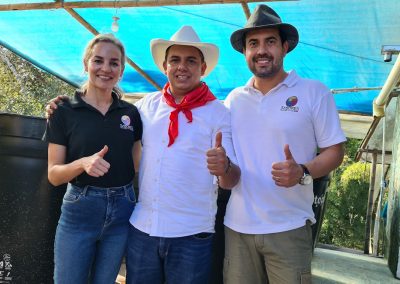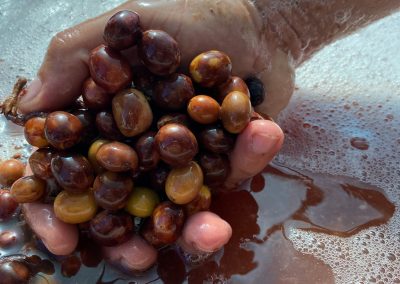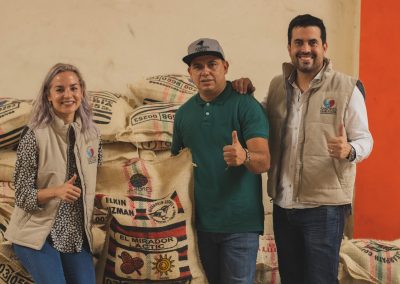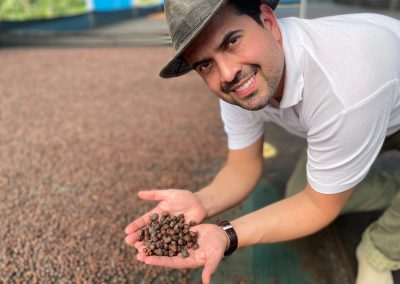Tabi Natural
Hydro-Honey
Tabi Natural Hydro-Honey – Data Sheet
– Coffee Name: Tabi Natural Hydro-Honey
– Grade: Excelso
GEOGRAPHIC LOCATION
– Country: Colombia
– Region: Palestina, Huila
– Farm: El Mirador
– Altitude: 1.680 m.a.s.l
GROWING CHARACTERISTICS
– Varieties: Tabi
– Drying: Sun-dried
– Processing: Natural Hydro-Honey
ORGANOLEPTIC CHARACTERISTICS
– Notes: Plums, Lychee, Chocolate and Blackberries
– SCA Score: >88
Farm Info
The Tabi Natural Hydro-Honey is harvested and produced at El Mirador, located in the town of Palestina in Huila, Colombia, owned by Elkin Guzman. The farm includes a broad collection of varieties such as Catiope, Mokka, Gesha, Bourbon, Caturra, and Tabi, which is a variety developed and released in 2020 in Colombia by Cenicafe by crossing the varietals; Bourbon, Typica, and the Timor Hybrid.
In the world of differentiated coffees, Elkin and his team have been experimenting and evaluating variables that help improve the quality of the coffees they handle to offer an excellent drink for coffee consumers worldwide for more than 13 years.
The area of the farm is 31 hectares, with sandy-loam and clay-loam soils with good organic matter conditions that aid in the excellent nutrition of their coffee trees. El Mirador is managed under semi-shade systems to optimize temperature regulation and the effect of photosynthesis in coffee plantations.
Elkin has been dedicated to researching and developing post-harvest processing techniques. All this research and experience has brought Elkin to develop multiple processing techniques depending on an individual lot of coffee, including Carbonic Maceration, Lactic and Acetic Natural processes, and Natural Hydro Honey.
Tabi Natural Hydro-Honey Process
At El Mirador Farm, the Tabi Natural Hydro-Honey undergoes 3 stages:
The first step is for the coffee to be dried and fermented for a period of 8 to 12 days for its natural phase.
After the natural phase, the coffee is then taken to tanks with water, in order to humidify the cherry for 24 to 36 hours.
The last phase is to de-pulp the cherries and take them for the honey phase of drying, this cycle has a duration of 15-20 days.




